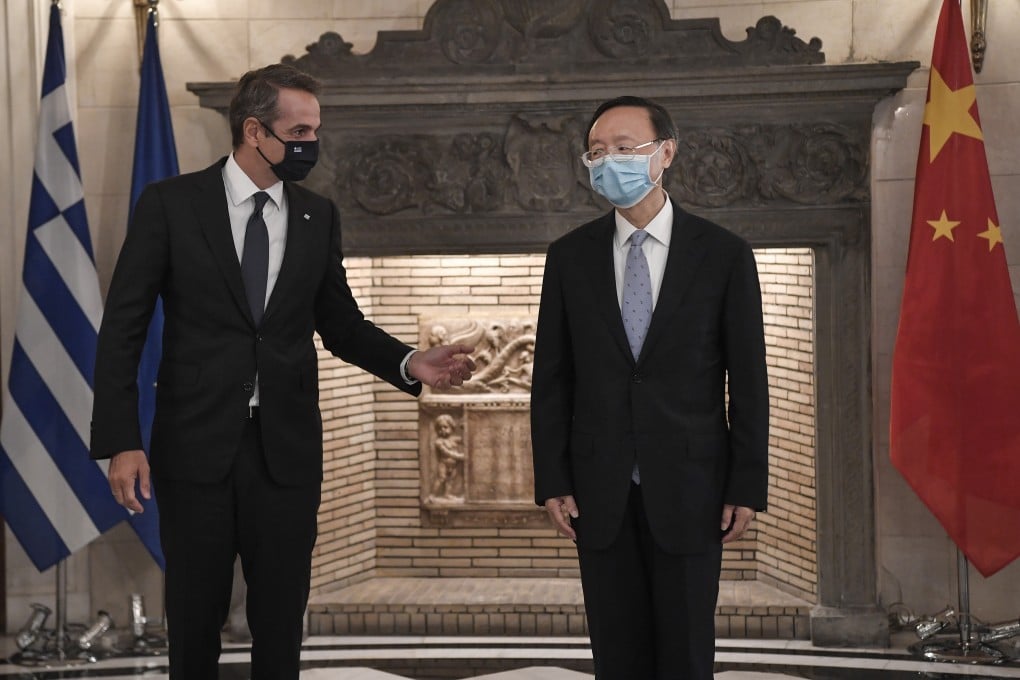China’s top diplomat Yang Jiechi urges EU and Asean to work to build trust
- Yang’s comments follow visit to Myanmar, Spain and Greece as part of a drive to counter growing pressure from the US
- Communist Party’s foreign affairs chief insists relationship with EU is one of the most important to China as investment treaty deadline looms

China stands ready to work closely with the EU and Asean to cement political trust, the country’s top diplomat said on Sunday, as Beijing reached out to its two biggest trading partners.
Yang Jiechi, the head of the Communist Party’s foreign affairs office, was speaking after his visit last week to Myanmar, Spain and Greece.
Yang told state news agency Xinhua the Association of Southeast Asian Nations and European Union could contribute greatly to the world economic recovery and ensure stable supply and industrial chains.

04:45
China’s most-senior diplomats, Wang and Yang, conclude back-to-back visits to Europe
His trip came right after Foreign Minister Wang Yi’s week-long five-nation tour in Europe and Yang’s recent visit to Singapore and South Korea as China seeks to counter intensifying pressure from the United States and looks for cooperation in tackling Covid-19 and its economic aftermath.
Yang said in a written interview with state news agency Xinhua published on Sunday that the EU was “one of the most important foreign relationships for China” and “differences in social systems and development modes” should not be a barrier to cooperation as the two sides’ shared interests expand.
Yang said China and the EU should try to enhance mutual trust, effectively manage conflicts and conclude talks on a strategic agenda for cooperation that would map out their relationship for the next five years.